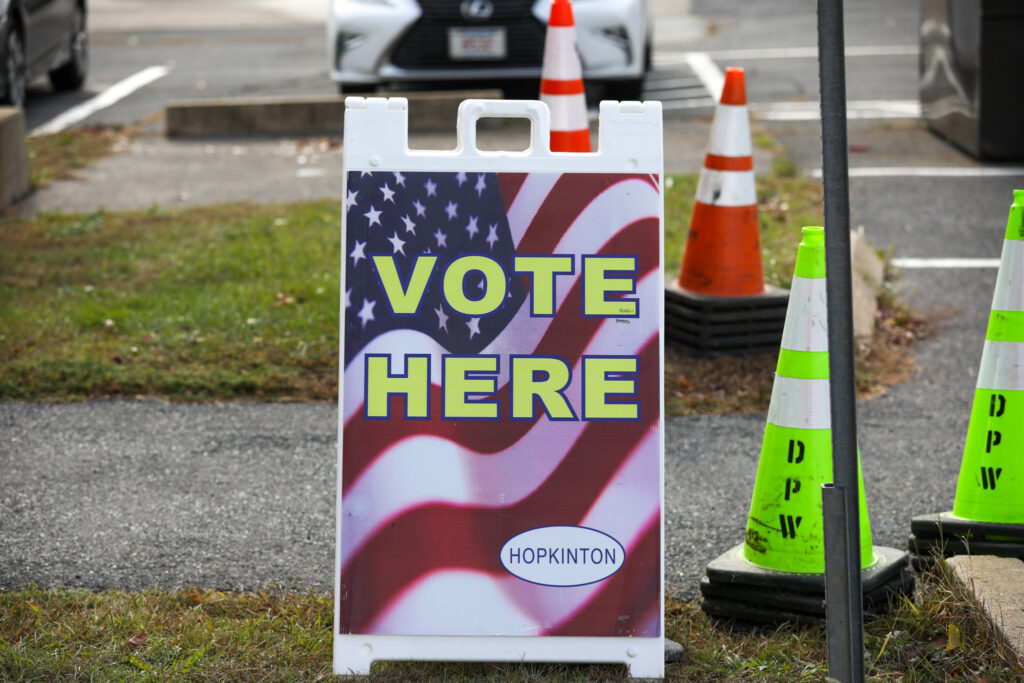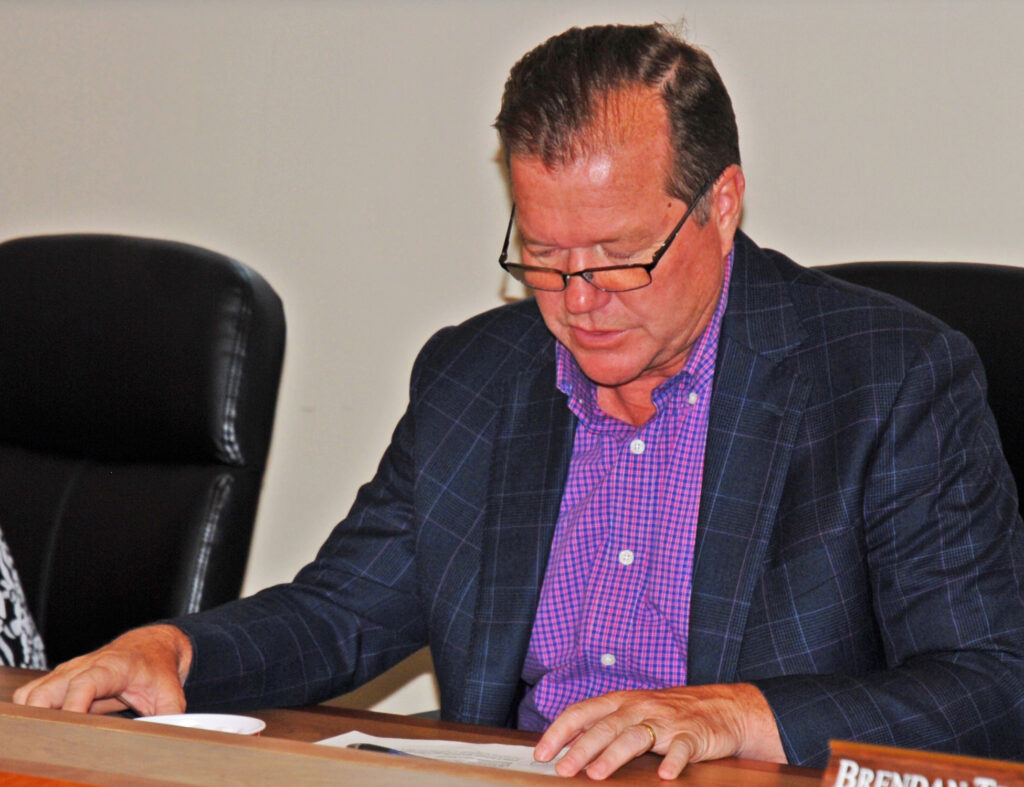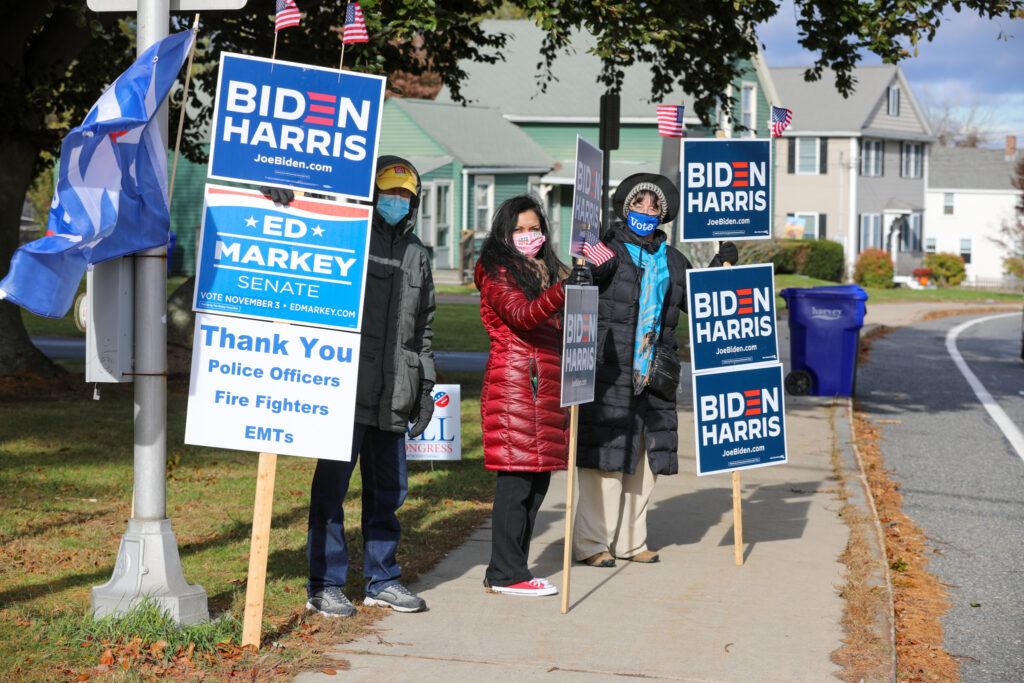Anyone with an interest in the race for the presidency had to be feeling some anxiety during the week — before the election, on Election Day and then during the nationwide counting that was headed into the later part of the week as the race was too close to call.
Hopkinton residents had an outlet to discuss their feelings, as Hopkinton Youth & Family Services offered one-on-one Zoom (or phone) chats for anyone dealing with election-related stress — during what is already a stressful time due to the pandemic.
Additionally, an election mental health resource web page included links to organizations and website that can help. Among the advice for “election sanity” was to practice meditation and train one’s mind to be more resilient, transform anger, become less reactive and more open, and limit anxiety.
Youth & Family Services director Dawn Alcott said she only heard from three residents on Election Day and the day after.
“One call was from a young adult who was confused by the tension around the election and how he felt people were not treating each other kindly,” Alcott said. “The other two callers were older community members who were feeling a lot of anxiety and we were able to talk about keeping the coverage of the election somewhat controlled — choosing how much media to interact with and finding an enjoyable way to spend some time. Both were more homebound residents who were finding it hard to be alone and not have anyone to talk to about the presidential election. We talked about their experiences with other elections and how they got through challenging elections in the past.”
While the nation was divided between Democrat Joe Biden and Republican Donald Trump, in Hopkinton the choice was clear. The unofficial results showed Biden with well more than twice as many votes as the incumbent (6,976 votes to 2,936, with Libertarian Jo Jorgensen grabbing 137 for third), a slightly higher percentage than the statewide totals as of Wednesday night.
“Clearly the town is in line with the overall Massachusetts electorate,” said Select Board member Brian Herr, who switched from Republican to independent two years ago due to frustration with Trump. “That has been the case in statewide elections for several cycles now. The Republicans that get traction can reach 38 percent in Massachusetts for federal elections. Those that don’t usually finish around 32 percent. Massachusetts and Hopkinton value positive, forward-thinking leadership. Trump’s candidacy never had a chance here.”
Hopkinton, which used to have a strong Republican presence, has been trending more and more Democratic over the last couple of decades. Hopkinton had 13,105 registered voters for Tuesday’s election. Of those, 3,022 are registered as Democrats, 1,975 are Republicans, 7,862 are unenrolled and 156 are members of another party (Libertarian, United Independent Party, etc.).
In 2016 Hopkinton went for Hillary Clinton big (60 percent to 32.6 percent for Trump and 7.4 percent for third-party candidates), but the number for the Democrat was even bigger this time out.
“One change I did see is from 2016 is a big decrease in the number of votes for third party candidates,” said Select Board member Amy Ritterbusch, a Democrat. “It seems like Hopkinton voters who were lukewarm toward both Trump and Clinton in 2016 chose Biden in 2020.”
Ritterbusch also noted that while the number of registered Democrats has increased modestly in the last four years (about 400), more significant is the willingness of the local Dems to get involved in town politics.
“Locally I noticed that after the 2016 election a lot more younger people, women, minorities and Democrats started putting their hat in to run for local office in Hopkinton or to serve on appointed boards and committees,” she said. “So the demographics of our local officials has changed significantly since 2016 and I think more closely mirrors Hopkinton residents as a whole. Also in the local elections Democrats are turning out to vote more frequently in the local election than Republicans and independents are, so the local Democrats seem more energized and engaged after 2016.”
Touching on Massachusetts Ballot Question 2, which health with ranked choice voting, Ritterbusch said she was surprised that it did not pass in Hopkinton nor statewide.
“After the close primary race for our Congressional District 4 where none of the candidates received a majority of the votes, I really thought a ranked choice system made sense,” she said.

















0 Comments